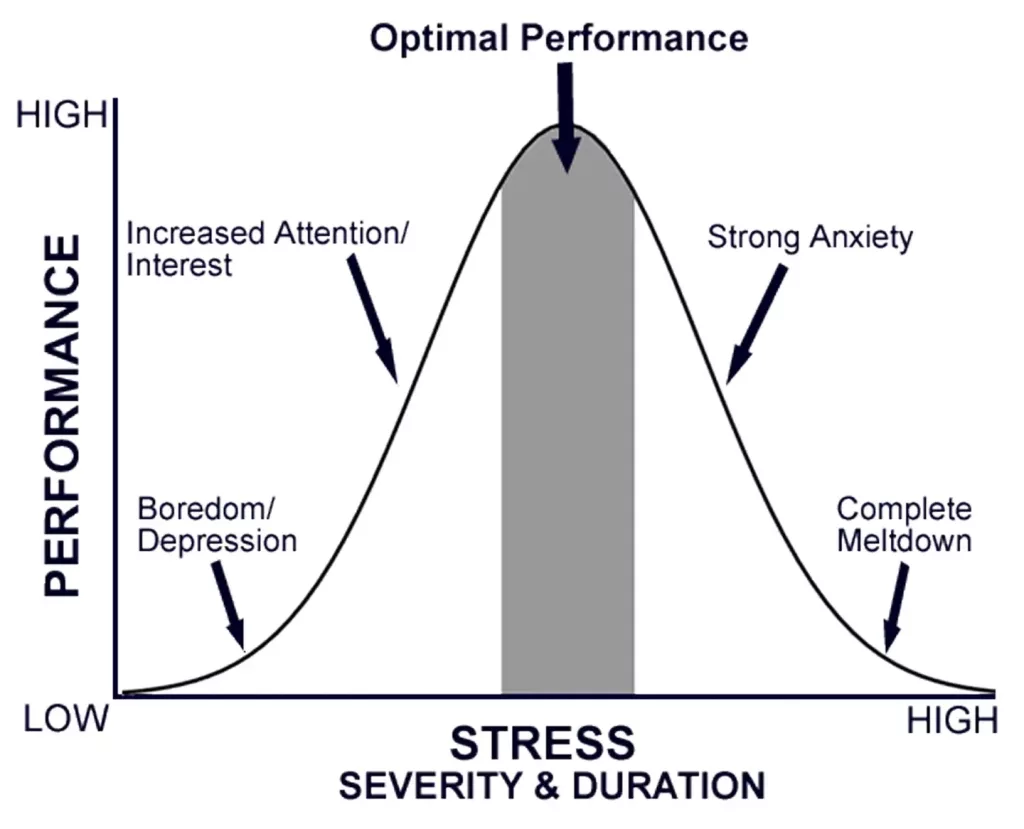By Joe Judge and Dr. Mike Merrill, co-authors — “Leadership is Overcoming the Natural: 52 Maxims to Move Beyond Instinct”
Oddly enough, success is actually pretty scary. You’d think that becoming successful would be everyone’s dream, but for many, it feels more like a nightmare.
The fear of success often stems from the fear of being separated from what you find most familiar, which can manifest in self-sabotaging behaviors and hinder you from reaching your full potential. If you look deep within yourself and are brutally honest, chances are you’ll find that the thing you dread the most is not the fact that you are not good enough to succeed.
The thing you fear even more is probably your power to succeed. Effective leadership, however, requires you to find ways to rise above this fear.
Success involves a leadership mindset that is willing to leave what is comfortable
Deep-seated anxiety is bound to accompany any leader’s journey toward success. These anxieties spring from a fear of being separated from what is known and comfortable.
By its very nature, successful leadership means taking risks, embracing change, and being open to new ideas. Change is a part of life. It’s inevitable, and it’s something we all have to deal with at one point or another, but fear of change prevents us from making progress, learning new skills, and trying new things. Successful leaders cultivate the ability to adapt to unfamiliar situations because they know that if they cannot change their approach or mindset, they will not achieve the goals they set for themselves. According to a recent Gallup poll, employees who have guidance from leadership on how present changes will impact their organization in the future are more likely to feel engaged as part of a thriving workforce.

Success challenges effective leadership with shifting social dynamics
A leader’s path to success can feel like a lonely journey because it is a journey of self-discovery, self-development, and self-improvement. As a growing leader, success will introduce separation into your social circles, creating friction and societal pressure that you must navigate to move forward.
Everyone thrives on interpersonal connection, but success distances you from the people around you. When you sense that your connections are being threatened, you may withdraw from what you have achieved.
In contrast to the lonely path of success, the shared experience of failure unites you with others in many ways. As a group, you can vent your frustrations, gain a sense of solidarity, and isolate yourself from those people who strive to break away from the group. You may unite with others in feelings of aggravation, seeing the people who achieve success as out to get you, dishonest, greedy, power-hungry, or ruthless.
However, the truth is that the world is far more complex than our imaginations suggest. Assumptions about those outside of your group tend to be exaggerated and only serve to hold you back, keeping you exactly where you are and hindering your growth.
The social structure you find yourself within is a living, grasping thing that seeks to maintain your status quo and hold you in place. It exerts a palpable pressure that makes distancing yourself emotionally extremely challenging.

Your social structure is not your enemy, but rather an opponent of your success. For example, I know of a woman who embarked on a career change. Her entire family backed her decision to enroll in nursing school and told her it would be a great opportunity for the family. However, as classes got underway and homework picked up, her family slowly undermined her achievement. Subconsciously, they made her feel guilty for spending less time with them. They all wanted her to attend school, do well, and graduate, but the systemic pressure made it difficult for her to achieve.
Success threatens effective leadership by striking at our core Identity
Becoming successful means that you have inherently changed to some extent, and change can threaten your sense of self because it requires you to leave behind who you once were. At times, you will see success as a threat to your identity, requiring you to grapple with personal adjustments and continued growth.
Achieving greatness often makes you feel like a stranger to the people around you — possibly even to yourself — but to be a successful leader, you need to improve yourself, which may require you to part ways with things you enjoy. You must develop different skills, adjust your personality, make new friends, and set higher standards.
The things you cling to will also change as your career progresses and you take on greater responsibilities that hold greater significance. You will need to become a better version of yourself, but that old self will call you back, especially when the path to success grows rocky.
It can feel nerve-wracking to press forward and leave that familiar self behind. However, at the end of the day, you have to prioritize your success over the things you choose to carry with you.

Success means adopting a leadership mindset that can balance change and external expectations
A leader’s journey toward success is not an easy one. It requires hard work, dedication, courage, a willingness to fail, and an ability to overcome the fear of that failure.
To achieve success, you must uncover the delicate balance of embracing change for personal and professional development while acknowledging the impossibility of pleasing everyone in your life. You must find ways to manage external expectations and societal pressures amidst your transformative journey toward success.
It’s important to remember that there are two sets of standards for success: your own and those set by others, be they family, friends, or coworkers. Sometimes, your goals will not be entirely compatible with other people’s wishes, so you will need to balance these two elements without allowing yourself to become overwhelmed by either one.
In times of emotional distress, you will feel pulled to cling to what psychologists term “transitional objects” — people, habits, and objects that provide emotional comfort and support. You risk losing touch with them when you achieve professional success or advance in your career.
Effective leaders learn to embrace change amidst fear
The key to overcoming the fear of success is to embrace change. You must grow to see it as an opportunity rather than a threat.
Success is not something you achieve, then sit back and enjoy for years to come. It is a process that requires constant attention and commitment to keep improving yourself along the way.
The journey toward successful leadership is strewn with obstacles, but actionable strategies for managing relationships and embracing change in careers and management roles make the path possible. First, take a moment to think over all of the “success fears” that cause you the most anxiety, and then write them out in a physical list.
Next, start promoting the success of others around you. Consider honestly whether you have inadvertently held anyone back or unconsciously sabotaged someone’s success. Now that you know what it takes to walk the path toward success yourself, take steps to encourage others on the same journey.
Finally, instead of dwelling on what success has taken from your life, start looking at how success has improved your life. Think about how becoming a leader has challenged you to grow as a person and how it has benefited the people who follow you.
We all have the potential to be successful, but it’s not easy. Success involves taking risks and facing our fears, but if we can learn to embrace change, we can navigate transitions with confidence, ultimately overcoming the fear of success.
